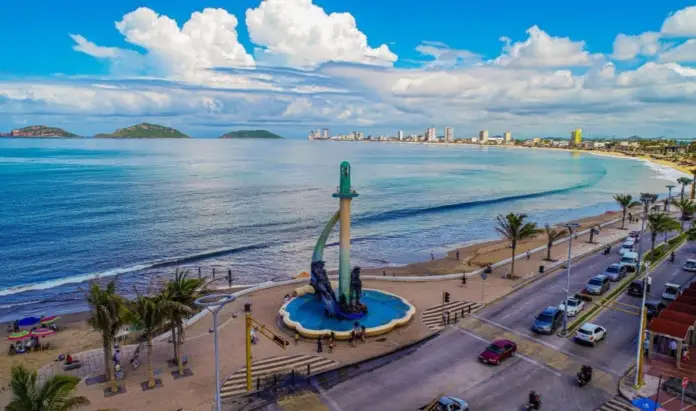The recent news of vandalism against a house in Mazatlán, supposedly owned by a foreigner—who ended up being as Mazatlan as his last name, Lizárraga—is a visible wound that exposes a silent illness: resentment toward all things American.
And it all started with a video that went viral on social media accusing the homeowner, supposedly a foreigner, of kicking out a worker who was eating on the sidewalk outside his house. The collective anger wasn’t so much caused by the act itself, but because the subject of the video was American.
This resentment, which unleashes fury disguised as social justice, goes beyond momentary indignation. This act forces us to ask ourselves what kind of society we are building, and who we believe we have the right to exclude or punish.
Graffiti, vandalism, and cries of hate are not protests, much less peaceful demonstrations: they are crimes. Nothing, absolutely nothing, justifies attacking private property simply because it belongs—or is believed to belong—to someone “from outside.” These acts, fueled by rumors, prejudices, and misinformation, sow distrust in the city we all share. We turn the “other” into an enemy, and violence into a legitimate language.
Mazatlán, historically, has been a city open to the world. Its prosperity is woven by tourists, immigrants, and visitors of all kinds. At what point did we stop seeing the foreigner as an ally, as a neighbor, and instead turn them into a target of resentment? What image are we projecting when we respond with balls and graffiti instead of dialogue?
This resentment toward foreigners isn’t always expressed openly, but it hangs in the air: in sarcastic jokes, in after-dinner grievances, in gestures of disdain toward those who cross the border in search of sun, beaches, and, sometimes, a more affordable life. It’s a complex feeling, steeped in history, frustration, and also misunderstandings.
Yes, the relationship between Mexico and the United States has been long and often unfair. Invasions, territorial loss, economic exploitation, cultural contempt: there are scars that remain open. But turning this painful history into daily hatred toward specific individuals is not an act of resistance; it is a form of moral impoverishment.
Americans are accused of making cities more expensive, of monopolizing spaces, of imposing their presence without integrating. Sometimes these criticisms are well-founded, but generalizing and blaming everyone equally is like falling into the same reductionism that we Mexicans have suffered so much abroad. This simplistic logic doesn’t build justice; it only deepens division.
Furthermore, resentment is often a convenient way out: it prevents us from looking inward. It is easier to blame the “invading gringo” and/or the arrogant one than to demand that our own governments regulate the real estate market, protect the labor rights of construction workers, or design more inclusive cities. The real problem is not the presence of foreigners per se, but the absence of public policies that prioritize the common good.
Mexico, and Mazatlán in particular, should be able to relate to the world with dignity, not with distrust or contempt. Recognizing our historical wounds is legitimate and necessary, but using them to justify hostility perpetuates a cycle of symbolic violence that isolates, impoverishes, and fractures us.
Resentment is simple. Building mutual respect, demanding respect in both directions, is the real challenge. And it is the only path to a coexistence that honors the best of our identity: the warmth, hospitality, and pride of being Mazatlan.
Today, that vandalized house in the Palos Prietos neighborhood is an uncomfortable symbol, not only because of the material damage, but because of the deterioration of our coexistence and our social contract. Mazatlán deserves much more than blind rage. It deserves critical citizens, yes, but also responsible ones; citizens who defend their city, not destroy it.
Finally, we must all keep in mind that if we normalize violence in response to a rumor that goes viral on social media, any of us could be the next target tomorrow.
Source: noroeste




